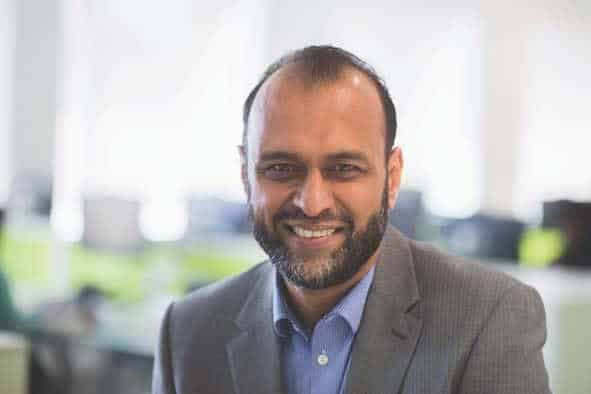
Local authorities had to spend an additional £136 million on children’s social care between March and July, it has emerged.
New analysis from five leading children’s charities, Action for Children, Barnardo’s, the Children’s Society, NCB and the NSPCC, submitted to the Treasury, reveals that even before the pandemic hit these services were facing a funding crisis.
Javed Khan, Barnardo’s Chief Executive, said: “Even before the pandemic, too many vulnerable children were missing out on vital support. COVID-19 and the recession are driving many more families to breaking point, with mental health needs rising, growing numbers of children in poverty, and the prospect of even more children entering the care system. Particular groups of children, including those from Black, Asian and ethnic minority communities are at greatest risk.
"This is why Barnardo's is delivering a government-backed programme called See, Hear, Respond, in partnership with more than 80 other organisations, to respond quickly to the needs of young people and their families during the pandemic.
“However, to achieve sustainable, lasting change for children, we need a longer-term funding commitment from the government to invest in earlier intervention for families in need of help.
“But we also need to spend those resources wisely. That’s why Barnardo’s is taking a radical new approach - working with national and local partners and investing our own resource to co-design and deliver services that change children’s lives, and the system around them, for the better,” he added.
Local authorities were operating with £2.2 billion less funding for children in 2018/19 than in 2010/11, and their decreasing resource was affecting their ability to support and protect young people. The COVID-19 pandemic has placed these services under further pressure.
Children have also been at greater risk of harm through:
- increased economic insecurity
- housing insecurity
- stress at home
- reduced oversight from professionals and other adults
- increased time online leaving some young people vulnerable
Children’s charities say that now is the moment to make an investment in children’s social care that is sustainable; able to level up communities by distributing according to need; and delivered through a mechanism that will encourage early intervention.
The charities warn that Coronavirus has placed an already struggling system under unsupportable strain, and is likely to worsen the trend in spending that has seen early intervention services, which aim to prevent situations from reaching a crisis point, lose 46% of their funding over the last decade.
Local authorities have been forced to spend their ever-diminishing pots of funding on their statutory obligations to children and young people, meaning early services have diminished while children’s services are left to fire-fight serious and complex child protection issues.
The analysis reveals that spending on these areas, like safeguarding and children in care, rose by 29% since 2010/11 and 22% more children were subject to child protection plans in 2018/19 than in 2010/11, which some local authorities connect to the lack of early intervention work to prevent problems escalating.
However, the increased spending is not leading to improved outcomes for children with children from the care system reporting lower educational attainment and being over-represented in the youth justice system.
Furthermore, since 2010/11, central government funding for local authorities with areas of high deprivation - where children are facing the greatest challenges, with high levels of unemployment, free school meal eligibility and domestic abuse - has fallen at twice the rate of those in the most affluent parts of England. Areas with significant levels of deprivation are also most likely to be vulnerable to ongoing disruption from the pandemic.
Chancellor Rishi Sunak is being urged by the charities to ensure that local authority children’s services can give the most vulnerable young people the help they need during these unprecedented times.
Peter Wanless, Chief Executive of the NSPCC, said: “A decade of under investment by central government meant local authorities across the country cut back on preventive and early intervention services while spending more on increasingly expensive care placements.
“The crisis will dramatically worsen this unsustainable situation as the risks to children increase while the financial impact undermines local authority’s ability to respond, especially in more deprived areas that have already experienced greatest losses in funding.
“The chancellor must act decisively to rebuild the capacity of local areas to provide the crucial evidence-based support services that will be fundamental to helping children recover from this crisis.
“Papering over the cracks of an underfunded system is simply not an option if the government is serious about delivering a recovery that levels up for the children most vulnerable to the long-term impact of the pandemic,” he concluded.


